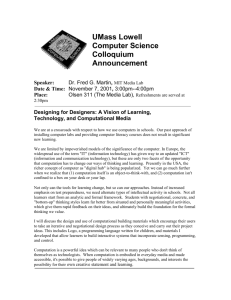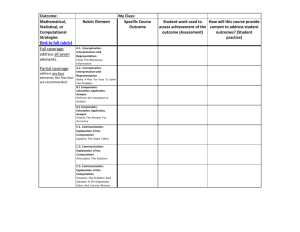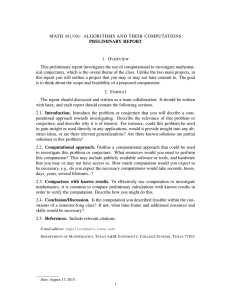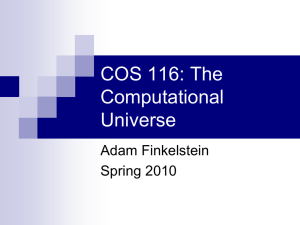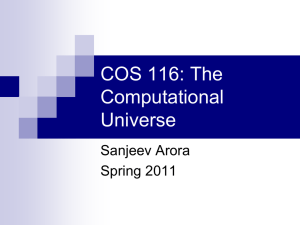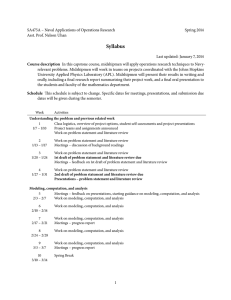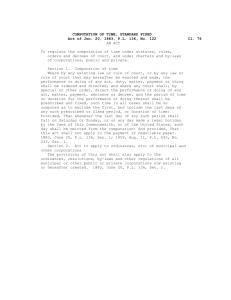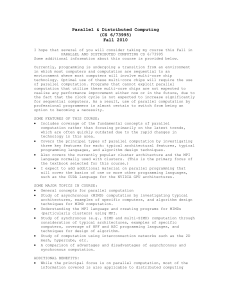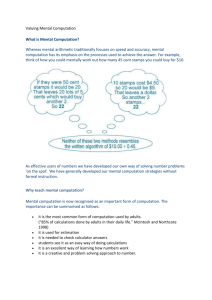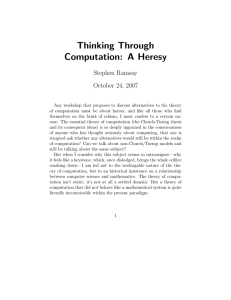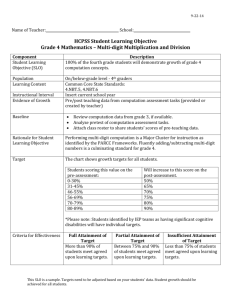slides - UCL Computer Science
advertisement
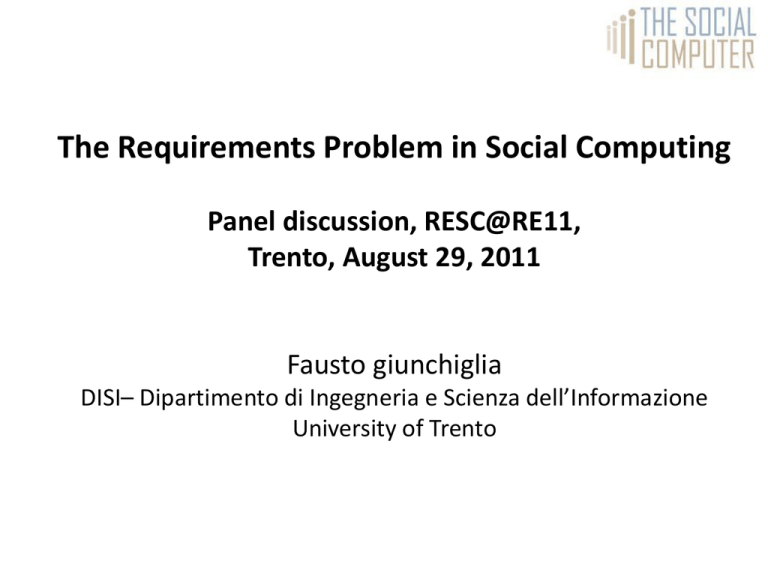
The Requirements Problem in Social Computing Panel discussion, RESC@RE11, Trento, August 29, 2011 Fausto giunchiglia DISI– Dipartimento di Ingegneria e Scienza dell’Informazione University of Trento Which “agent” is computing? Social computing (most often): computer agents in collaboration with humans (activated by humans) Social computation(the social computer): human agents in collaboration with computers Key differences: • Requirements, theory of computation • How do you write your criteria of success (specifications) Social computing (DARPA Balloon Challenge) Problem specification: Ten red weather balloons will be launched at a specified time in different locations across the USA. Design a computation that finds them all in the shortest time. Prize for the winner $40,000 Social computations (of the social computer) Internet scale human problem solving • 30 million people suffer from rare diseases in Europe. • There are 8000 rare diseases. • Only 1900 of these are diagnosable. • No Member State Health Service offers diagnostic services in all 1900 conditions • Conventional“long tail” problem Social Computers beyond Social Computing Social computation decentralised through society Conventional computation Compute and data intensiveness of solution Social control of healthcare and disease Problems in this space have: •Small, direct impact locally magnified when replicated across global society; or •Huge, potential impact globally but need a social infrastructure to harness the local ingenuity and data of humans/sensors. Social decentralised systems (social computing) Social intensiveness of solution E-Bay Facebook DARPA Network Challenge RE for the Social Computers Existing systems can be mapped on a 2-dimensional space determined by: Computational and data Intensiveness: different modes for capturing, storing, analyzing data and integrating with human activities, contexts and documents; exploiting results for provision of services Social inclusiveness: different forms of social information processing (e.g., blogs, wikis, SN platforms etc.) that involve – to various extents– large amounts of data from large amount of What is new? Research challenges (1) a. Development of advanced mechanisms to combine human capabilities, computers and networks into new forms of human organization and social activity, e.g. network protocols including social rules, incentives; customizable computer programs b. Integration of social sciences/humanities and ICT – the former will determine the design of Social Computers and the Internet, the latter will implement it c. Development of new science, engineering and infrastructures that will provide unprecedented data to social sciences Research challenges (2) 7 main scientific interdisciplinary challenges arise and should be met: 1. Enabling human- social computer symbiosis 2. Enabling computational societies 3. Managing human, social and technological diversity and its impacts on social computation 4. Managing the evolution in time of humanns, society and technology and their impact on social computation 5. Guaranteeing privacy and security of individuals 6. Development of a science of the New Internet 7. Engineering the infrastructure to evaluate and test Social Computer applications Where do we start? Case study driven Need real world experimentation I have started with “Science as social computation” Current exercise: IJCAI “computational” community The Social Computer Internet-Scale Human Problem Solving Thank you!
